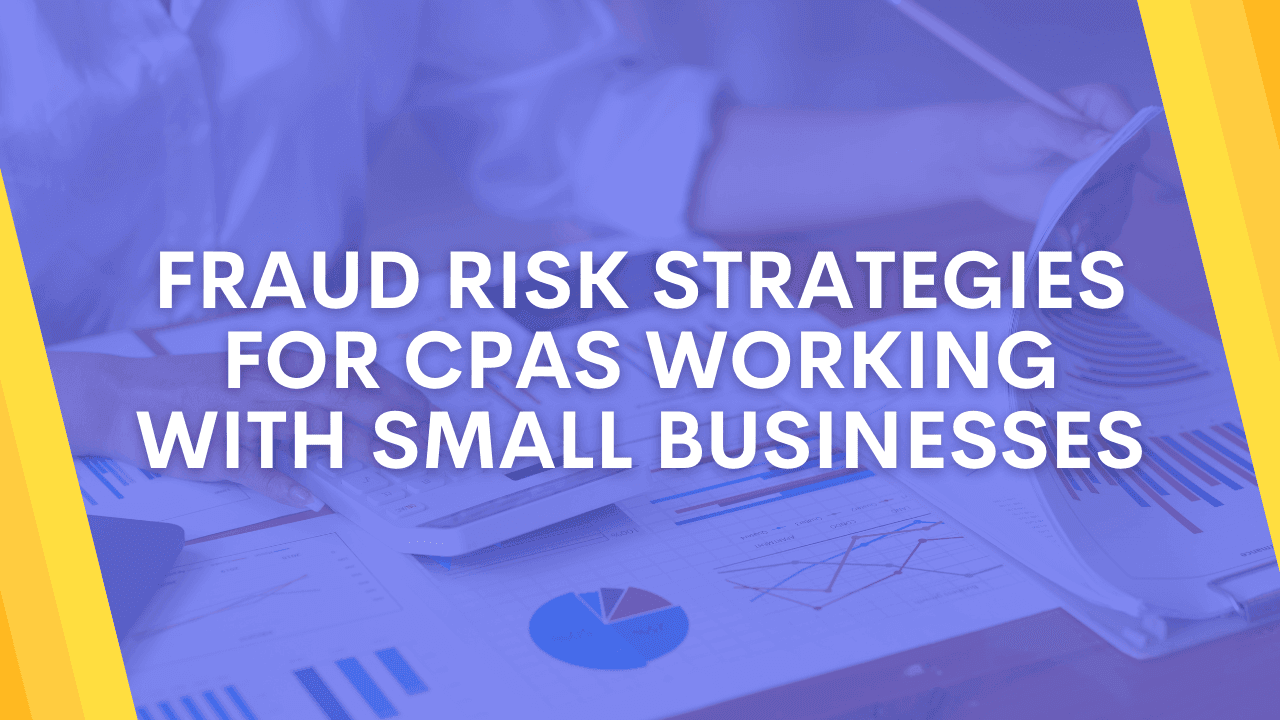Introduction
Small business fraud costs Australia more than $8.5 billion annually—and most victims never saw it coming. As a Certified Practising Accountant (CPA), your role goes beyond compliance: you’re often your client’s first and only line of defence.
This article breaks down how and why small businesses are targeted, the misconceptions holding your clients back, and the exact systems you can help them implement. You’ll walk away with practical tools and CPD-aligned learning paths that strengthen your fraud prevention capabilities and boost your advisory impact.
Why Are Small Businesses More Vulnerable to Fraud?
Small businesses experience fraud at nearly double the rate of large corporations, yet many owners still believe, “It won’t happen to us.” This combination of high exposure and low awareness makes your role as a CPA essential.
For example, in well-documented fraud schemes, an accounts payable clerk fabricates vendor profiles, approves invoices, and processes payments—often within poorly controlled systems—resulting in significant theft. These cases typically succeed due to a lack of segregation of duties and oversight, common weak spots in many small and medium-sized enterprises (SMEs).
Under the CPA Australia Code of Professional Conduct, CPAs are expected to act in the public interest and maintain competence. Helping small businesses build fraud-resistant systems isn’t just good advisory practice—it’s part of your ethical duty.
What Stops Small Business Owners From Taking Action?
Many small business owners operate on trust, assuming long-term employees or loyal vendors won’t defraud them. This mindset is risky.
ANZ Bank recently issued a fraud alert, reporting that fake invoices and email scams cost Australian businesses over $84 million last year, most of them SMEs.
The problem is cultural, not just operational. Owners often resist controls out of fear they'll "offend" staff or "complicate" workflow. Your job is to reframe the conversation:
-
Show how internal controls create scalability, audit readiness, and efficiency
-
Emphasise that controls are about systems, not suspicion
-
Tie control systems to bank financing, tax compliance, and growth
To help guide this conversation effectively, CPAs can turn to the 2025 Fraud Prevention for Accountants CPD Package. This program consolidates expert-led insights on fraud risk management, red flags, reporting obligations, and ethical frameworks—all tailored for Australian professionals.
What Internal Controls Should CPAs Recommend First?
Theory doesn’t stop fraud—systems do. As a CPA, your best value is helping clients create simple controls that align with the compliance work they already do.
Start every fraud risk discussion with the fraud triangle: opportunity, pressure, and rationalisation. Then tailor your advice to the industry:
-
Retail: Review cash handling, stock control, and refund approval.
-
Service businesses: Examine timesheets, reimbursements, and invoicing.
-
Professional firms: Look into trust accounts and billing practices.
Use existing ATO recordkeeping rules to build natural controls:
-
Goods and services tax (GST) and Pay as you go (PAYG) documentation already require structured processes.
-
Superannuation and payroll reconciliations expose red flags.
-
Business Activity Statements (BAS) submissions are a ready-made trigger for monthly fraud checks.
Pair this with technology that scales—most modern cloud-based accounting systems offer audit trails, user-level permissions, and automated alerts. For resource-strapped clients, these tools reduce both fraud and friction.
Use a tiered structure:
-
Prevention: Hiring checks, duties split between staff, policy clarity
-
Detection: Monthly reconciliations, system alerts, dashboard review
-
Response: A written fraud response plan, escalation protocols
To stay current on tactics like email fraud, invoice manipulation, and AI-enabled scams, the Fraud Trends: Digital Payments Fraud course offers timely insights and CPA-verifiable credit.
How Can CPAs Stay Ahead of Evolving Fraud Trends?
Fraud techniques evolve constantly. As your clients' trusted advisor, staying ahead isn’t optional—it’s your responsibility.
Start by identifying your most at-risk clients:
-
Cash-heavy operations
-
Family-run businesses with no formal checks
-
Rapidly growing companies with unchanged systems
Offer to conduct a fraud risk review this month for three of them. Look for overlap with payroll, procurement, or invoicing—these are where most employee schemes start.
For a values-driven approach that blends governance with action, Fraud Prevention and Ethical Practices in Business explores how ethical culture intersects with fraud control—ideal for CPAs who want to enhance client trust and meet CPA Australia’s ethical code.
Conclusion
Fraud prevention is now essential—it’s a key aspect of your value as a CPA. Your small business clients depend on trust, but they also need effective systems in place. By converting compliance requirements into actionable everyday controls, you can safeguard their future and enhance your impact.
To expand your expertise in fraud, ethics, advisory, and more, consider the Unlimited CPD Pass for Australian CPAs. This pass provides access to all the courses mentioned here, along with many others specifically designed for small business practitioners.
